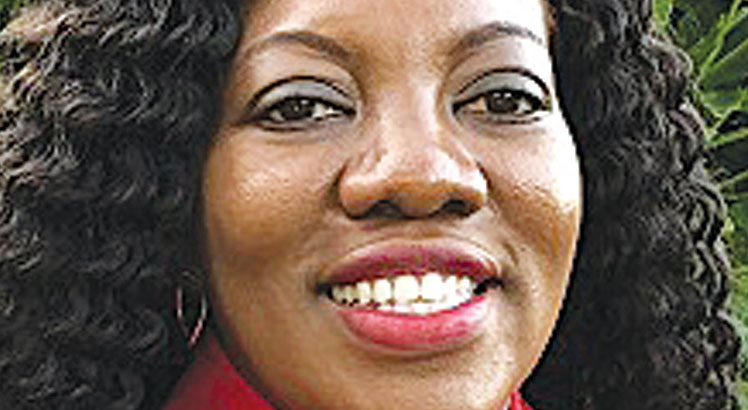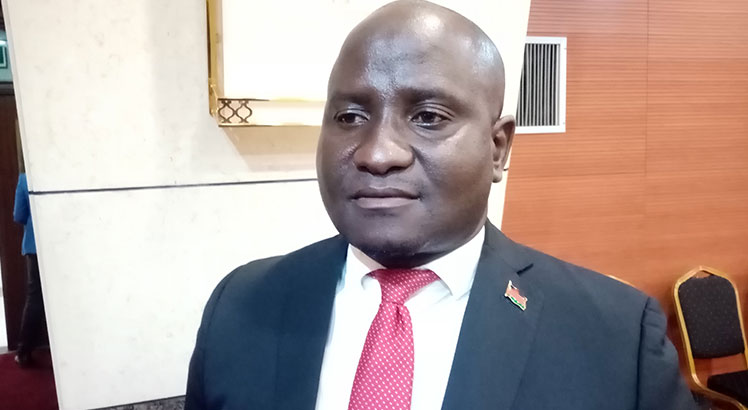Various stakeholders have blamed low women’s representation in Parliament on political parties alleged patriarchal entrenchments which intimidate them from participating in elections.
Women’s Legal Resources Centre (Wolrec), Action Aid Malawi, Oxfam in Malawi and Malawi Human Rights Commission (MHRC) censured political parties for the current 19.20 percent women’s representation in Parliament.
The scenario is against the Gender Equality Act (2013) which requires appointment of not less than 40 percent of either gender in any department within the public service, including in politics.
But some political parties Nation on Sunday spoke to allay the stakeholders’ fears, claiming they have in place policies to promote women’s participation in frontline politics.
In an interview on Wednesday, Wolrec executive director Maggie Kathewera Banda said women’s representation in Parliament is limited due to parties’ reluctance to field women in elections.
She said: “If you talk to political parties, they will tell you that in their constitutions they have provided for quotas for women, mostly at 40 percent. But they do not have the will to implement their own guiding instruments.”
Kathewera Banda: There is no political will
Kathewera Banda said the other challenge is lack of an enabling law to regulate or guarantee women’s representation in elected positions.
“You may recall that we had an electoral Bill just before the 2019 elections which was shot down by Parliament. That Bill proposed to have at least 28 seats that would only be contested by women. But the shooting of that Bill meant no law on affirmative action,” she said.
Kathewera Banda further said women do not have resources to undertake impactful campaigns, stressing the need for political parties to fund those showing interest to participate in politics.
In a response to a questionaire, Action Aid Malawi executive director Pamela Kuwali said women’s lack of a sound financial base is also contributing to their low representation in Parliament.
She said: “Although lately women are able to ascend into high political office, politics remains a male-dominated space which can be extremely intimidating for women.
“Women are naturally tender and soft-spoken unless if very well supported institutionally through, party policies and electoral laws, for example through quotas, achieving the desired numbers for Malawi remains a far-fetched dream.”
MHRC executive secretary Habiba Osman on Wednesday said there is lack of political will to promote women and to adhere to the Gender Equality Act.
She said the situation is further compounded by lack of voices towards the cause by civil society.
“In terms of low contribution, I would say the burden of reproductive and production, care is still a contributing factor, and let’s not forget literacy levels combined with access to capital for those that would run for political office.
“These are still issues we are grappling with,” said Habiba.
In recent years, various studies have been undertaken to establish the extent of women’s participation in politics.
According to a Nation on Sunday analysis from 1994 when the first post-one party general elections were held, there has been no significant improvement in women’s representation
in Parliament despite political liberalisation.
For instance, after a 1994 general election, the proportionate number of women in Parliament was six percent. In the aftermath of the 1999 elections, women’s representation in politics was 11 percent before reaching 13.5 percent in 2004.
After the 2009 elections, women’s representation in Parliament was at 22.3 percent before it dropped to 16.6 percent in the 2014 tripartite polls.
And after the disputed 2019 elections, the number of women represented in Parliament partly increased to the current 19.20 percent.
The equal representation gap is far much wider when compared to men’s representation in frontline politics.
For example, the proportionate number of men who are members of Parliament is 89.80 percent.
A February 2016 report titled ‘Women and Power: Representation and Influence in Malawi’s Parliament’ by Ngeyi Kanyongolo, Tam O’neil, Joseph Wales and Moir Walita Mkandawire stated that political power in Malawi is open to a narrow socio-economic group of women, bound by both class and social expectations.
Reads part of the report: “Even so, in a patronage-based political and electoral system with no controls on party finance, women are at a distinct disadvantage, with fewer economic resources and less access to male-dominated clientelist networks.”
Now as the country moves towards the 2025 general election, Oxfam in Malawi country director Lingalireni Mihowa said there is need for mentorship of women who would like to participate in politics.
In a telephone interview on Wednesday, she said oftentimes, support that goes to women aspirants comes a year prior to the elections which should not be the case.
“In an ideal situation, such support or campaigns must start three years before an election and in a worst-case scenario, it must start at least two years before.
“Our reflection is that support comes late when damage has already been done. So, now is the time to start drumming up support for women aspirants,” said Mihowa.
But Malawi Congress Party spokesperson Ezekiel Ching’oma on Friday said the party has managed to grow its women representation from two to around 30 percent.
He, however, said the party and its leadership only exercises its powers when it comes to appointing women leaders in different positions existing within its mandate.
Ching’oma said: “It is not possible for a political party to make a woman become a member of Parliament. This is the responsibility of the electorate.
“That is why the Malawi Congress Party, in collaboration with other stakeholders, provides mentorship and training to women who are representing the party in different constituencies in the country.”
United Democratic Front publicity secretary Yusuf Mwawa on Thursday said the party is considering a quota system where women, including the youth are given priority.
He said: “The United Democratic Front is taking seriously its quest for women’s participation in politics in general and representation in particular. Firstly, given the performance of the party from the 10 seats it won during the last elections, three seats are held by women.
“And in order to improve role modelling in the party, we have a female president and the second deputy speaker is also a woman.”
Democratic Progressive Party spokesperson Shadric Namalomba and UTM Party spokesperson Felix Njawala had not responded as we went to press.
The post Parties blamed for low women representation first appeared on The Nation Online.
 Moni Malawi
Moni Malawi 

